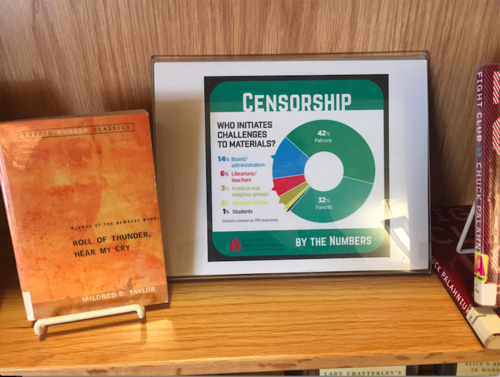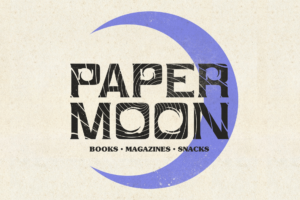By Jeffery Doherty
Banned books are as American as the Declaration of Independence, yet the history of banned books is not known to most. Jennifer Ward of the Albany Public Library’s Bach Branch created a display to inform library-goers about the history of banned books, as well as some banned books even casual readers may know of. Even a few books kids read in school for class have ended up on the banned lists.
“It cycles,” Ward said when interviewed. Books have been banned for a myriad of reasons. Books like The Catcher and the Rye have been banned for being referenced as canonical texts for prolific murderers, while other books, including the Bible, have been continually challenged or banned outright because of their religious values. Ward did reiterate that books being banned is fairly rare, but when books are banned it’s for their content.
Thirteen Reasons Why was the number one banned/challenged book of 2017, according to the American Library Association. The reason: its depiction of suicide throughout the story. LGBTQ themes and sexual content, even in informational children’s books like Sex is a Funny Word, get some books on banned lists. Books like To Kill A Mockingbird remain on banned lists because of profanity, for Mockingbird it’s the N-word; that’s besides the fact that much of the book is devoted towards Atticus Finch combating racism. Ward added that some of the same old reasons why books are banned still exist, while newer topics like LGBTQ topics or suicide are fairly new.
Another point Ward noted was the fact that book bans were often targeted at Young Adult—YA books, like Thirteen Reasons Why, with the challenges coming from either parents, or patrons, 32 and 42 percent of all book ban petitioners respectively according to the ALA.
YA books are unique because they’re targeted at young adults, often with themes that are pertinent to young adults, like LGBTQ issues, and suicide. Other YA books aim to inform their audience through the narrative, while others are more interested in a good story. Of course, the interesting things for teens now won’t always be interesting. Books that were YA in the 1950s likely won’t be viewed as YA as time passes.
Ward did talk about when she was younger, and how book censorship usually went. “Do you know what your children are reading?” was a common question the parish priest often asked the parishioners. Word got around about YA books, usually regarding the salacious contents held within them. Adults would ask librarians to ban books made for kids, even if they had never read them. Ward joked about how a ban on the Kamasutra, a sexual tutorial book if you will, has never truly come about.
Ward did say “I can see that happening again,” regarding a rise in books being banned for their contents, but she did note that the situation itself has improved from years past. Maybe the reason some books are banned, is the reason why we should read them in the first place.





